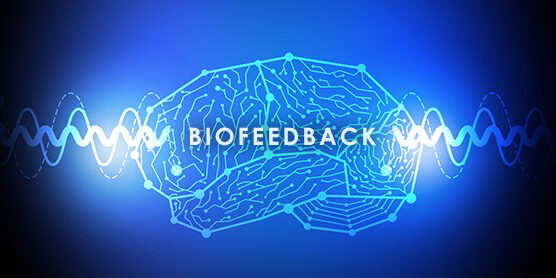Biofeedback is our body’s physical responses to stimuli. It is the way in which our body’s systems communicate with each other, and it also pertains to our assessment of these responses.
When we go for a jog, for instance, or lift a heavy item, our body reacts with an increased heart rate and sweat under our armpits. Our body is responding to physical exercise with feedback that lets us know that we’ve exerted strenuous effort, and the next day’s muscle aches indicate that we are growing stronger. If, however, we begin to feel sharp and penetrating pain, our body is warning us that something is amiss and in need of immediate attention. This is all biofeedback. In a clinical sense, biofeedback typically indicates the use of instruments to measure your individual physiological functions.
Biofeedback and the Body
Biofeedback can also be used to inform you of how your individual body functions on a normal daily basis. Specifically, when you pay attention to your heart rate before a workout, you can measure your resting beats-per-minute. If you then measure your beats-per-minute post-workout, you would know, aside from the pounding heart in your chest, that your heart is beating at a much more rapid rate. If you then compare these varying heart rates overtime, you begin to get a sense of how much more effort your heart exerts during activity. This feedback is useful in gaining a stronger sense of your body’s normal, healthy state and to better detect when things aren’t functioning as they should be.
Biofeedback is particularly useful in addiction treatment because it invites you to become more in tune with your body’s normal ebbs and flows. When you are addicted to a substance or a behavior, your attention is either drawn away from your immediate physical state or preoccupied with seemingly uncontrollable physical reactions, and your body’s organic rhythms are interrupted. When you tune into the natural cycles of your body, you reset your attention, reestablish your intentions, and allow your physiological systems to restore proper communication with each other. As you increase your relationship with your body’s cycles, you will inevitably find that you feel more in control and comfortable in your body’s typical state of existence, and your awareness of how certain substances and behaviors impact your physical systems grows.
Biofeedback and the Mind
Biofeedback not only puts you in touch with your physiological functions, but also expands your awareness of your moods and mental states. As you begin to pay attention to the biological feedback provided by your body, you also become conscious of your feelings and thoughts during times of increased or decreased physical excitement or stress. If you notice, for instance, that you feel particularly angry, negative, or “punchy” when your heart rate is increased after a workout, you might introduce soothing techniques such as yoga, journaling, or aromatherapy into your routine. You’ve then begun to train your mind to seek calming activities during high-intensity moments.
On the other hand, if you notice that you “check out” of your physical sensations and surroundings after a workout, or frantically look for an escape during, you might practice grounding techniques such as massage or controlled breathing to awaken you and bring you back into your body. As you practice these activities regularly, you’ll be less likely to freeze up or take flight during stress-inducing situations and more skilled in staying present and generating beneficial solutions.
Overall, the intention of biofeedback training is to build skills that are readily transferable and applicable to moments of high distress. When you practice biofeedback techniques regularly, you are then better prepared to notice when you’re stressed and more capable of calming yourself down, independent of substances and behaviors that are not beneficial to your health. Attunement to your natural rhythms through biofeedback decreases your risk for impulsive behavior and significantly boosts your independence and self-confidence. Therefore, biofeedback training serves as a powerful tool in our drug addiction treatment programs here at My Addiction Physician.
The biofeedback techniques we find most useful in treating addiction include Resonance Frequency Breathing (RFB) and Heart Rate Variability (HRV).






